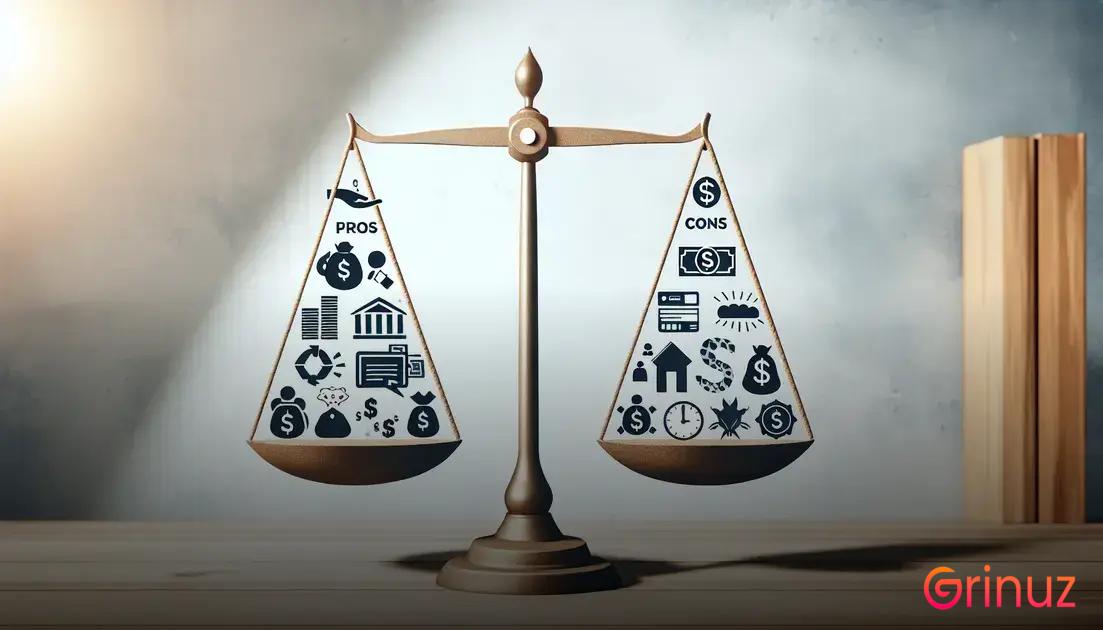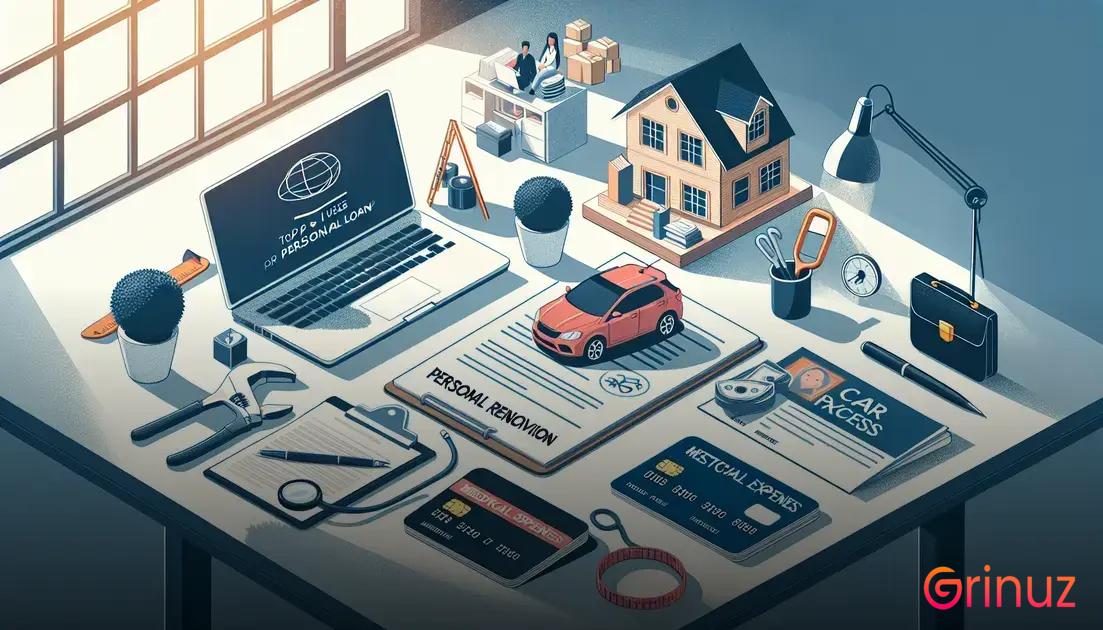Personal loans can be a powerful tool to improve your financial situation. They offer flexibility and can be used for various purposes. By understanding the ins and outs of personal loans, you can make informed decisions to manage your finances better.
Understanding personal loans
When it comes to borrowing money, personal loans are a versatile and accessible option. They can be used for a variety of purposes, such as consolidating debt, financing a large purchase, or covering unexpected expenses. Personal loans usually come with fixed interest rates and structured repayment plans, which can make budgeting easier.
Types of Personal Loans: There are mainly two types of personal loans – secured and unsecured. Secured personal loans require collateral, such as a car or property, offering lower interest rates due to reduced risk for the lender. Unsecured personal loans, on the other hand, don’t require collateral but may have higher interest rates due to the increased risk.
Interest Rates and Fees: Interest rates on personal loans can vary widely based on several factors, including credit score, loan amount, and loan term. Fees like origination fees and late payment penalties can also affect the overall cost of the loan. Therefore, it’s essential to review these details before committing.
Application Process: The personal loan application process typically involves submitting personal and financial information to the lender, which may include income details, employment history, and credit score. Many lenders offer online applications, making the process quick and convenient.
Repayment and Impact on Credit: Once approved, the loan amount is disbursed usually in a lump sum. Borrowers must then repay the loan over a set period with interest. Timely payments positively affect credit scores, while missed payments can lead to penalties and a negative impact on credit.
Pros and cons of personal loans

Pros of Personal Loans
- Fixed Interest Rates: Many personal loans offer fixed interest rates, making budgeting easier since your monthly payments remain constant throughout the loan term.
- Flexibility: Personal loans can be used for various purposes, such as debt consolidation, home improvement, or unexpected expenses.
- No Collateral Required: Unlike secured loans, most personal loans are unsecured, meaning you don’t need to put up assets like your home or car as collateral.
- Quick Approval Process: Many lenders offer fast approval and funding, sometimes within a few days, making personal loans a good option for emergencies.
- Improve Credit Score: Timely payments on a personal loan can help improve your credit score by demonstrating your ability to manage debt responsibly.
Cons of Personal Loans
- Higher Interest Rates: Since personal loans are usually unsecured, they tend to have higher interest rates compared to secured loans like mortgages or auto loans.
- Fees and Penalties: Be aware of potential fees, such as origination fees, late payment penalties, or prepayment penalties that can increase the overall cost of the loan.
- Impact on Credit Score: Missing payments or defaulting on a personal loan can negatively impact your credit score and make it harder to obtain credit in the future.
- Monthly Obligations: Adding a personal loan means another monthly payment, which can stretch your budget thin, especially if you have other outstanding debts.
How to qualify for a personal loan
Qualifying for a personal loan involves several key factors. First, lenders will evaluate your credit score. A higher credit score often results in better loan terms. Next, your income and employment history will be scrutinized to ensure you have the financial capability to repay the loan.
Another critical aspect is your debt-to-income ratio. Lenders prefer a lower ratio, indicating that you are not over-leveraged. Additionally, having a steady income demonstrates reliability, making you a more attractive borrower.
Documentation Matters
Ensure you have your financial documents in order. This typically includes pay stubs, tax returns, and bank statements. These documents provide a comprehensive view of your financial situation, aiding lenders in their assessment.
Consider a co-signer if your credit score is lower. A co-signer with a good credit history can enhance your chances of approval.
Shop around for the best terms by comparing rates from different lenders. Understanding these criteria and preparing accordingly can significantly improve your chances of qualifying for a personal loan.
Top uses for personal loans

Personal loans offer a versatile solution for various financial needs. They can be used to consolidate existing debt, often resulting in a lower interest rate and a single, more manageable monthly payment. Many individuals take out personal loans to cover large expenses, such as medical bills, home renovation projects, or significant life events like weddings.
Another popular use is to finance major purchases such as appliances, furniture, or even a new computer, without depleting savings. For those aiming to improve credit scores, timely payments on personal loans can positively affect credit history.
Additionally, personal loans are often used for emergency expenses that require immediate attention, providing financial relief during unexpected situations. Travel enthusiasts also turn to personal loans to fund vacations, making dream trips a reality without waiting to save the entire amount upfront.
Lastly, some use personal loans to invest in personal growth, such as funding education or professional courses that can lead to higher earning potential in the future.
Tips for managing personal loan debt
When it comes to managing personal loan debt, strategic planning is essential. Start by creating a detailed budget to track your income and expenses. This will help you identify areas where you can cut costs and allocate more funds toward loan repayment.
Consider consolidating your debt. Merging multiple loans into one can simplify your payments and may lower your interest rate. It’s important to research and compare consolidation options to find the one that best suits your financial situation.
Automate your payments to ensure you never miss a due date. Late payments can lead to additional fees and negatively impact your credit score. Setting up automatic transfers from your bank account can provide peace of mind and keep you on track.
Always prioritize high-interest loans first. Allocating extra payments to loans with the highest interest rates can save you money in the long run and shorten the repayment period.
If you encounter financial hardship, communicate with your lender. Many lenders offer hardship programs that can provide temporary relief, such as reduced payments or deferred payments, to help you manage your debt without falling behind.
Finally, consider seeking guidance from a financial advisor. Professional advice can provide personalized strategies for managing your personal loan debt effectively, ensuring you stay on the path to financial health.





